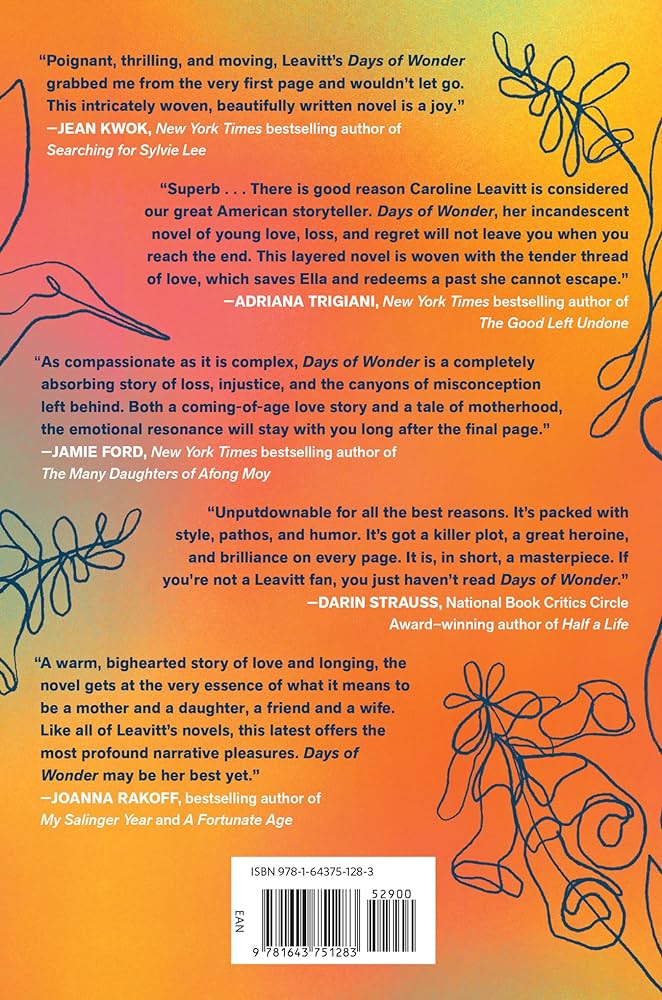9 Best American Authors Who Shaped My Life: A Must-Read List for Every Literature Lover
Discovering great American authors can be a life-changing experience. These literary giants craft stories that resonate deeply, offering you new perspectives and unforgettable journeys. Whether you’re seeking profound insights or simply a good read, the right author can make all the difference.
In this article, we’ll explore nine of the best American authors who have left an indelible mark on readers’ lives, including yours. From classic novelists to contemporary storytellers, these writers have shaped the literary landscape and continue to inspire countless readers.
1. Mark Twain: The Father of American Literature
Mark Twain, born Samuel Langhorne Clemens, is celebrated as The Father of American Literature. His works have shaped the way we view storytelling in the United States.
Key Works: “The Adventures of Huckleberry Finn”
“The Adventures of Huckleberry Finn” is arguably Twain’s most famous novel. Published in 1884, it tackles themes of race, identity, and freedom through the eyes of a young boy, Huck, and a runaway slave, Jim. Hailed for its vivid depiction of pre-Civil War America and its incisive satirical wit, it’s often considered the quintessential American novel. Twain’s masterful use of regional dialects and keen social commentary also set it apart.
Influence on Modern American Writing
Twain’s influence on modern American writing is profound. He pioneered a distinctive American voice that broke away from European literary traditions. His humor, realism, and use of colloquial language paved the way for future American authors. Writers like Ernest Hemingway and J.D. Salinger credit Twain with inspiring their narratives, where everyday speech and ordinary people take center stage. Twain showed that American stories could be both deeply entertaining and socially significant.
2. Toni Morrison: Voice of Black America
Toni Morrison stands as a literary giant for her powerful exploration of the African American experience. Her work resonates deeply, offering a profound understanding of history, identity, and resilience.
Key Works: “Beloved”
“Beloved” is Morrison’s best-known novel, earning the Pulitzer Prize in 1988. It tells the harrowing story of Sethe, an escaped slave haunted by the ghost of her daughter. Through lyrical prose and intense narrative, Morrison examines the trauma of slavery and the struggle for identity in post-Civil War America. “Beloved” is a must-read, showcasing Morrison’s mastery of blending reality with the supernatural.
Themes of Identity and History
Morrison’s novels often grapple with complex themes of identity and history. She delves into the collective memory of African Americans, questioning how the past shapes the present. Her characters frequently face internal and external battles to define themselves within a society marked by racial injustices. By focusing on these themes, Morrison sheds light on the ongoing impact of historical oppression, making her work both timeless and timely.
3. Ernest Hemingway: Master of the Short Story
Ernest Hemingway revolutionized American literature with his direct prose and powerful storytelling. Known for his minimalist style and adventurous life, Hemingway’s works remain essential reading.
Key Works: “The Old Man and the Sea”
One of Hemingway’s most celebrated works, “The Old Man and the Sea,” tells the story of Santiago, an aging Cuban fisherman. Published in 1952, this novella won the Pulitzer Prize in 1953 and was pivotal in Hemingway receiving the Nobel Prize in Literature in 1954. The story’s exploration of human struggle and resilience against nature showcases Hemingway’s ability to weave deep themes into simple narratives.
Contributions to the Iceberg Theory
Hemingway’s Iceberg Theory, also known as the theory of omission, transformed modern writing. He believed that the underlying meaning of a story should not be evident on the surface but should shine through implicitly. This approach is exemplified in his short stories like “Hills Like White Elephants,” where much is left unsaid, leaving readers to infer the deeper significance. By mastering this technique, Hemingway set a new standard for narrative subtlety and depth.
4. Emily Dickinson: The Recluse Poetic Genius
Key Works: Collected Poems
Emily Dickinson’s “Collected Poems” unveils her profound talent and unique voice. Out of almost 1,800 poems, only a handful were published during her lifetime, often edited to fit conventional standards. You’ll find that her works, such as “Because I Could Not Stop for Death” and “I Heard a Fly Buzz – When I Died,” break traditional poetic norms with their unconventional punctuation and capitalization. Dickenson’s intense emotional depth and innovative use of language make her collections essential for understanding her legacy.
Impact on American Poetry
Dickinson’s comprehensive influence reshaped modern American poetry. She revolutionized the use of slant rhyme and experimented with meter and structure—techniques that you’ll see echoed in the work of many poets who followed her. Her introspective themes, ranging from death and immortality to nature and love, remain timeless and universal. Her reclusive nature paradoxically amplified her mystique, heightening interest in her life and work. By daring to deviate from 19th-century poetic conventions, Dickinson carved her place as a cornerstone of American literature.
5. F. Scott Fitzgerald: Chronicler of the Jazz Age
F. Scott Fitzgerald’s writings offer a vivid portrayal of the Jazz Age, capturing the era’s exuberance and excess. His insightful storytelling about the American social landscape remains influential.
Key Works: “The Great Gatsby”
Recognize “The Great Gatsby” as Fitzgerald’s most acclaimed novel. Setting the stage in the 1920s, it reveals the tragic pursuit of the American Dream. The characters, like Jay Gatsby and Daisy Buchanan, symbolize ambition, love, and the ultimate disillusionment that often accompanies such dreams. Use this novel to explore themes of decadence, idealism, and social upheaval.
Exploration of the American Dream
Analyze how Fitzgerald scrutinizes the American Dream’s corruption. Through protagonists drawn to wealth and status, he illustrates the moral decay behind their glamorous façades. Notice how characters in his novels often face the harsh reality of their aspirations, embodying the tension between illusion and reality. This critical perspective continues to engage readers, making his works timeless critiques of American society.
6. Maya Angelou: A Symbol of Resilience and Hope
Maya Angelou’s works embody strength, endurance, and the pursuit of justice. Her storytelling captures the essence of overcoming adversity and celebrates the human spirit’s resilience.
Key Works: “I Know Why the Caged Bird Sings”
“I Know Why the Caged Bird Sings” is Maya Angelou’s most iconic work. This autobiography details her early life, highlighting her struggles with identity, racism, and trauma. Angelou’s vivid descriptions and powerful prose draw you into her experiences, providing a poignant look at overcoming oppression. The book remains a staple in American literature for its unflinching honesty and its influence on subsequent generations of writers.
Advocacy and Representation in Literature
Angelou’s advocacy extended far beyond her books. She championed civil rights, working closely with figures like Martin Luther King Jr. and Malcolm X. Her literature often explored themes of social justice and equality, giving a voice to those marginalized in society. By representing Black women and their experiences, Angelou broadened the scope of American literature, fostering greater inclusivity and empathy. Her influence persists in contemporary discussions around race, identity, and human rights.
7. Edgar Allan Poe: Master of Mystery and Macabre
Known for his dark, eerie tales, Edgar Allan Poe is a staple in American literature. His works often explore themes of death, love, and the macabre, establishing him as a master of gothic fiction.
Key Works: “The Raven”
Poe’s most famous poem, “The Raven,” was published in 1845. This narrative poem, written in trochaic octameter, depicts a man’s descent into madness as he converses with a mysterious raven. Its melancholic tone and rhythmic structure have made it a timeless piece in American poetry. Quotes like “Quoth the Raven ‘Nevermore'” highlight his skill in creating memorable lines that resonate with readers.
Influence on the Horror and Detective Genres
Poe’s stories have profoundly influenced the horror and detective genres. Tales like “The Tell-Tale Heart” and “The Fall of the House of Usher” showcase his ability to evoke fear and suspense. Moreover, Poe’s character C. Auguste Dupin from “The Murders in the Rue Morgue” is considered the first fictional detective, paving the way for future detectives like Sherlock Holmes. His pioneering techniques in both genres continue to inspire writers today.
8. Ralph Waldo Emerson: Leader of Transcendentalism
Key Works: “Self-Reliance”
Emerson’s essay “Self-Reliance” stands out as a core text in American literature. It encourages you to trust your intuition and embrace your individuality. By urging readers to avoid conformity and follow their unique path, Emerson’s ideas resonate with anyone seeking to understand themselves and their purpose more deeply. Published in 1841, “Self-Reliance” remains a powerful and timeless work, promoting self-empowerment and personal freedom.
Philosophy and Its Influence on American Thought
Emerson’s philosophy of Transcendentalism profoundly impacted American thought and culture. He believed in the inherent goodness of people and nature, emphasizing the importance of self-reliance, individualism, and a deep connection to the natural world. By advocating for these principles, Emerson laid the groundwork for future American philosophical movements and social reforms. His ideas on personal and cultural independence influenced prominent figures like Henry David Thoreau and Walt Whitman, shaping the intellectual and cultural landscape of the United States.
9. Walt Whitman: The Bard of Democracy
Walt Whitman stands as a central figure in American literature, celebrated for his innovative poetic form and progressive themes. Known as the “Bard of Democracy,” his works capture the spirit and vitality of the American experience.
Key Works: “Leaves of Grass”
Whitman’s seminal collection, Leaves of Grass, continually evolved through multiple editions from its initial publication in 1855. This work’s poetic breadth spans themes of nature, humanity, and the self. Poems like “Song of Myself” exemplify his break from traditional forms, embracing free verse to explore the interconnectedness of life. Leaves of Grass remains a monumental piece in American poetry, reflecting the nation’s democratic ideals and the poet’s vision of an inclusive society.
Revolutionary Free Verse Poetry
Whitman pioneered the use of free verse in American poetry, fundamentally transforming the genre. Unlike structured, rhymed poetry, his free verse mimics natural speech patterns, creating a more direct and personal tone. This technique allows for expressiveness and freedom, mirroring his beliefs in individuality and democracy. His innovative style influenced countless poets and marked a significant departure from conventional forms, solidifying his legacy as a revolutionary voice in American literature.
Conclusion
Exploring the works of these nine American authors offers a glimpse into the rich tapestry of American literature. Each writer’s unique voice and perspective have left an indelible mark on the literary world. Their stories, poems, and essays continue to inspire and provoke thought, reflecting the complexities of the human experience. Whether you’re drawn to the wit of Twain or the introspection of Dickinson, there’s something in their works that resonates with every reader. Dive into their writings and discover the profound impact they’ve had on shaping American culture and thought.






